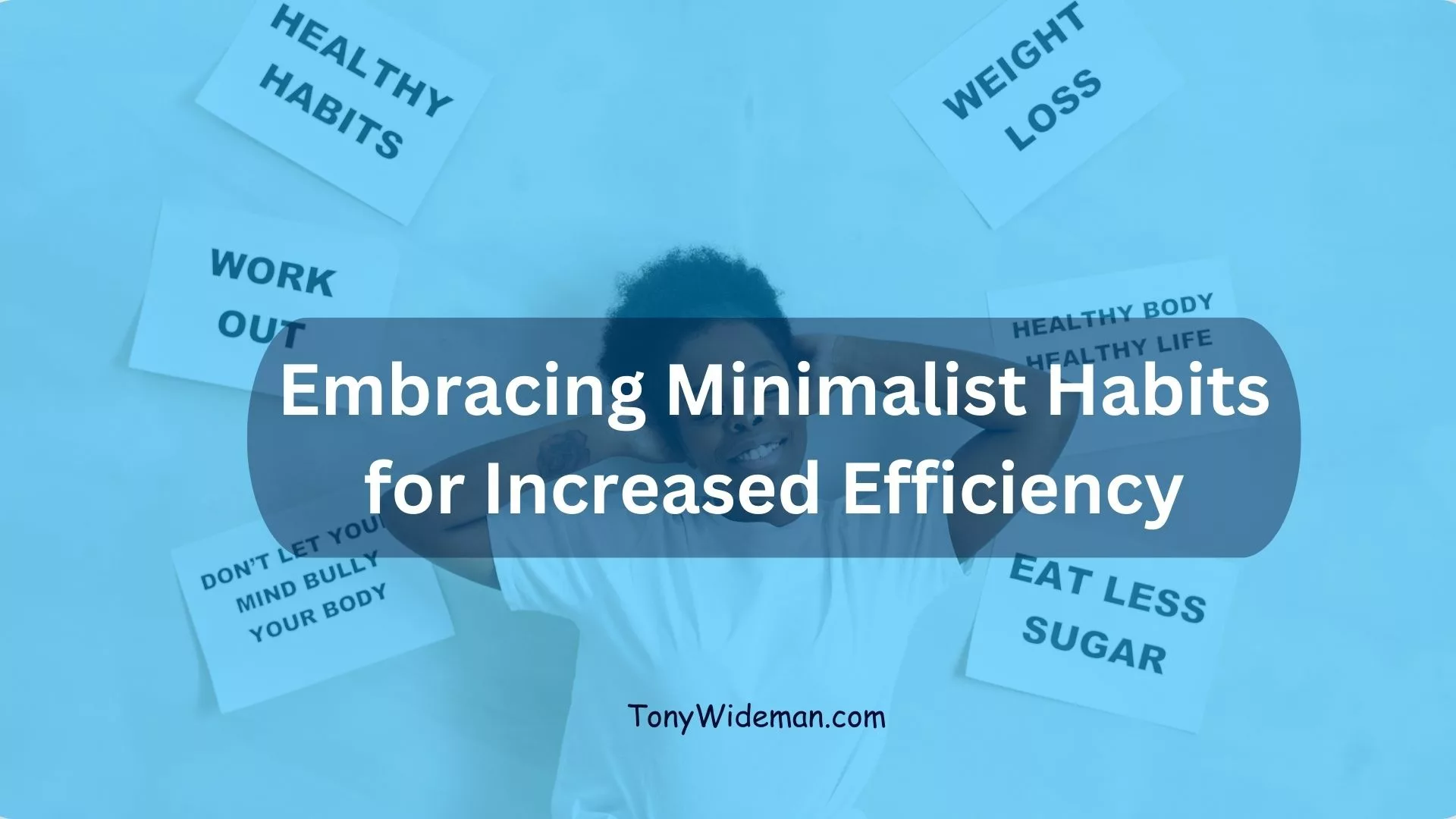Buy Less, Pray More: The Ultimate Guide To 7 Essential Habits For A Godly Life
Living with intention is one of those ideas that shows up in a lot of self-help advice, but if you ask me, some of the best guidance on this topic comes straight from the Bible. For anyone who’s ever felt like life is just moving too fast, or that buying less could leave room for something more profound, these seven Bible-inspired habits might offer a practical way forward.
Living A Godly Life
Living a godly life represents far more than following religious routines—it embodies a complete transformation of heart, mind, and spirit that draws us into deeper intimacy with our Creator. We understand that developing godly habits requires intentional commitment, sustained effort, and unwavering dedication to spiritual growth. Through decades of ministry experience and biblical scholarship, we have identified seven foundational habits that consistently produce extraordinary spiritual transformation in believers’ lives.
Why “Buy Less, Pray More” Matters for Intentional Living
The phrase “buy less, pray more” sums up a mindset that’s really about focusing on what matters most. The Bible often encourages turning our attention to spiritual and relational wealth, not just physical possessions. I’ve found that making small changes—owning less, turning to prayer more, and embracing gratitude—opens up my days in a different way. You don’t have to toss everything or move to the middle of nowhere; it’s about consistently choosing habits that create meaning instead of clutter or stress.
There’s even research backing this up. Studies show that people who practice gratitude, live, or put intentional limits on consumption tend to be more content and less anxious. While the Bible was written long before minimalism became popular, it’s packed with wisdom about making space for what truly matters.
Getting Started: The Core of Bible-Inspired Simplicity
Taking an intentional approach to life starts with switching up how you think about stuff. The Bible isn’t against things, but it does warn about letting possessions, or even busy schedules, crowd out our relationship with God or others. I’ve noticed a few core ideas that shape a more intentional, prayer-driven life:
- Contentment: 1 Timothy 6:6-8 highlights that “godliness with contentment is great gain.” This mindset isn’t about settling for less, but being deeply satisfied with what is already enough.
- Seeking God First: Matthew 6:33 encourages “seek first his kingdom and his righteousness, and all these things will be given to you as well.” This habit puts prayer and faith right at the start of any decision or purchase.
- Stewardship: The Bible frames everything we have as something we’re managing, not owning forever (Psalm 24:1). That perspective has made it a lot easier for me to buy less, knowing I’m not missing out.
So, here are seven habits I think you’ll find helpful—rooted in Scripture and designed to help you create a life with less stuff and more depth.
7 Bible-Inspired Habits for Buying Less and Praying More
- Practice Daily Gratitude
Philippians 4:6 teaches, “do not be anxious about anything, but in every situation, by prayer and petition, with thanksgiving, present your requests to God.” For me, keeping a small gratitude journal was a significant turning point. Gratitude has a way of crowding out the urge for more and shifting the focus back to what I already have. Even jotting down just three things I’m thankful for each night reminds me how much is already in my life. - Set Aside Quiet Time for Prayer
Starting and ending the day with quiet, screen-free prayer isn’t just peaceful, it’s grounding. Mark 1:35 tells how Jesus went to a quiet place to pray early in the morning. I try picking a chair or a corner just for this, even if it’s only for five minutes. That daily reset cuts through noise and overthinking, making it easier to see where God’s leading. - Pause Before Every Purchase
There are plenty of verses that warn about chasing after “more,” but Proverbs 21:5 sticks with me: “The plans of the diligent lead to profit as surely as haste leads to poverty.” I adopted a rule to pause and pray, even if briefly, before hitting “buy.” Sometimes I ask myself, “Will this bring true value or just temporary excitement?” That pause is often enough for me to put items back on the shelf. - Embrace Contentment in Everyday Life
The world knows how to make us feel behind or lacking, but Hebrews 13:5 urges, “Keep your lives free from the love of money and be content with what you have.” This isn’t about never wanting things, but learning to rest in sufficiency instead of chasing the next thing. It’s pretty freeing, honestly. - Give Generously, Even in Small Ways
Acts 20:35 says, “It is more blessed to give than to receive.” Generosity doesn’t need a big bank account. I’ve found that regularly looking for ways to give—sharing time, encouragement, or a meal—shifts my focus away from what I don’t have. It makes buying less feel more rewarding, since making space lets me spot more ways to help. - Declutter Regularly with Purpose
Instead of treating decluttering as a chore, I look at it as an act of stewardship and trust, letting go of what isn’t needed. Ecclesiastes 3:6 talks about “a time to keep and a time to throw away.” Doing this a couple of times a year, asking what I’m truly using or needing, lets me create more margin for prayer and relationships. I usually donate or share the things I let go. - Spend Time with Others, Not Just More Stuff
Hebrews 10:24-25 reminds us to “not give up meeting together… but encourage one another.” Focusing on people, not possessions or packed schedules, leaves room for more joy. I try making plans for walks and talks, board game nights, or even quick check-ins with friends. That kind of time almost always feels more “filling” than anything I could buy.
Habit 1: Cultivating an Intimate Prayer Life That Transforms Everything
The Power of Consistent Daily Prayer
Prayer serves as the cornerstone of authentic godly living, establishing direct communication between our hearts and God’s throne room. We must understand that effective prayer extends beyond requesting divine intervention—it represents intimate communion with our heavenly Father, who desires relationship above religious performance.
Developing a robust prayer life requires establishing specific times for seeking God’s presence, creating sacred spaces free from distractions, and approaching prayer with expectant faith rather than mechanical repetition. Morning prayer sessions prepare our hearts for the day’s challenges while evening prayers provide opportunities for gratitude, confession, and surrender of daily burdens.
Practical Prayer Strategies for Spiritual Growth
We recommend implementing the ACTS model (Adoration, Confession, Thanksgiving, Supplication) to create comprehensive prayer experiences that engage every aspect of our relationship with God. Adoration focuses our hearts on God’s magnificent character, confession cleanses our spirits through repentance, thanksgiving cultivates grateful hearts, and supplication presents our needs and concerns.
Maintaining prayer journals helps track God’s faithfulness while providing tangible evidence of answered prayers. We encourage believers to record specific prayer requests, date entries, and document God’s responses to build faith and strengthen trust in His perfect timing and wisdom.
Habit 2: Developing Unshakeable Faith and Trust in God’s Sovereignty
Building Trust Through Understanding God’s Character
Authentic faith develops through progressively more profound understanding of God’s unchanging character rather than favorable circumstances. We must anchor our trust in biblical truths about God’s love, wisdom, power, and faithfulness rather than allowing temporary difficulties to shake our confidence in His goodness.
Studying biblical accounts of God’s faithfulness throughout history strengthens our faith foundation. Abraham’s journey, David’s trials, and Paul’s sufferings demonstrate God’s consistent care for His people during challenging seasons. These scriptural examples provide powerful testimonies of God’s ability to work all circumstances together for our ultimate good.
Overcoming Fear Through Faith-Based Living
Fear represents faith’s greatest enemy, attempting to redirect our focus from God’s promises to present problems. We overcome fear by consistently choosing faith-based responses over emotion-driven reactions, regularly confessing biblical truths over adverse circumstances, and surrounding ourselves with faith-building influences.
Memorizing Scripture verses about God’s protection, provision, and promises creates mental reserves of truth available during fearful moments. When anxiety threatens our peace, we can immediately access these stored truths to combat fear with faith-filled declarations.
Habit 3: Immersing Yourself in God’s Word Through Deep Meditation
Beyond Surface Reading: The Art of Biblical Meditation
Meditation on God’s Word involves much more than casual Bible reading—it requires slow, thoughtful contemplation that allows Scripture to penetrate our hearts and transform our thinking patterns. We must approach biblical meditation with patience, allowing the Holy Spirit to illuminate divine truths through extended reflection on God’s written revelation.
Effective meditation involves selecting specific passages, reading them multiple times, asking probing questions about their meaning, and seeking practical applications for daily living. This process transforms God’s Word from mere information into life-changing spiritual nutrition that nourishes our souls and guides our decisions.
Creating Consistent Meditation Practices
We recommend establishing regular meditation schedules that fit naturally into existing daily routines. Early morning meditation prepares our minds for the day ahead, while evening reflection helps process daily experiences through biblical perspectives. Consistency proves more valuable than duration—fifteen minutes of focused daily meditation produces greater spiritual growth than occasional lengthy sessions.
Writing meditation insights in spiritual journals helps retain important revelations while creating permanent records of God’s speaking through His Word. These written reflections become valuable resources for future encouragement and guidance during difficult seasons.
Habit 4: Walking in Complete Obedience to God’s Will
The Joy and Freedom of Divine Submission
Obedience to God represents a loving response rather than reluctant compliance, flowing naturally from hearts transformed by His grace and mercy. We discover that God’s commands aren’t burdensome restrictions but loving boundaries designed to protect us from harm while directing us toward abundant life.
Faithful obedience requires identifying areas where worldly values conflict with biblical principles, then courageously choosing God’s ways regardless of social pressure or personal cost. This process demands ongoing spiritual maturity as we learn to distinguish between God’s voice and competing influences seeking to shape our decisions.
Practical Steps for Consistent Obedience
Developing obedient lifestyles begins with honest self-examination to identify specific areas where we struggle with submission to God’s will. We must courageously address these weak spots through prayer, accountability relationships, and practical steps that remove temptation sources from our environments.
Regular confession and repentance keep our hearts sensitive to the Holy Spirit’s conviction while maintaining clean consciences before God. Quick obedience to divine promptings strengthens our spiritual hearing and builds momentum for increasingly mature responses to God’s guidance.
Habit 5: Living in Complete Dependence on the Holy Spirit
Understanding the Holy Spirit’s Role in Godly Living
The Holy Spirit serves as our divine Helper, providing supernatural power for living beyond natural human limitations. We cannot achieve godliness through willpower alone—we desperately need the Spirit’s enabling grace to choose righteousness over selfishness and love over pride consistently.
Daily surrendering to the Holy Spirit’s leadership requires acknowledging our complete dependence on divine assistance for every aspect of Christian living. This humble recognition opens our hearts to receive supernatural wisdom, strength, and guidance for navigating life’s complexities according to God’s perfect will.
Cultivating Spirit-Led Living
We cultivate Spirit-led lives by beginning each day with prayer requests for divine filling and guidance, remaining sensitive to the Spirit’s gentle promptings throughout daily activities, and quickly obeying His direction regardless of personal preferences or comfort levels.
Regular spiritual inventory helps us recognize areas where we’ve grieved the Holy Spirit through sin, selfishness, or stubborn independence. Immediate confession and recommitment restore fellowship with God and reopen channels for His Spirit to work powerfully through our lives.
Habit 6: Embracing Generous Giving as Worship and Trust
Understanding Biblical Generosity
Generous giving represents much more than financial obligation—it embodies worship expression that demonstrates our trust in God’s provision while participating in His work throughout the world. We discover profound joy in generous living as we experience God’s faithfulness to provide for every need while using our resources for eternal purposes.
Biblical giving encompasses far more than monetary contributions, including generous investments of time, talents, encouragement, and practical assistance for those in need. Every act of generosity creates opportunities to bless others while strengthening our faith in God’s abundant provision.
Developing a Generous Heart
Cultivating generous hearts begins with recognizing that everything we possess belongs to God—we serve as stewards rather than owners of material resources. This perspective shift transforms giving from reluctant duty into joyful privilege as we participate in God’s work through faithful resource management.
Regular tithing establishes foundational giving patterns while additional offerings provide opportunities for sacrificial worship that stretches our faith and demonstrates genuine trust in God’s provision. We consistently discover that generous giving opens divine channels of blessing that far exceed our sacrificial investments.
Habit 7: Extending Forgiveness as God’s Grace Flows Through Us
The Transformative Power of Forgiveness
Forgiveness represents one of Christianity’s most challenging yet liberating practices, requiring supernatural grace to release those who have wounded us deeply. We must understand that forgiveness primarily benefits the forgiver rather than the offender, breaking chains of bitterness that would otherwise poison our relationships with God and others.
Biblical forgiveness doesn’t minimize offense severity or eliminate natural consequences—it releases our right to seek revenge while entrusting justice to God’s perfect wisdom. This process frequently requires multiple decisions to forgive as painful memories resurface, but persistent forgiveness eventually produces genuine emotional freedom.
Practical Steps for Extending Forgiveness
Developing forgiving hearts begins with regularly reflecting on God’s incredible mercy toward our sins and failures. This perspective reminds us that we’ve received far greater forgiveness than we’ll ever need to extend to others, making our expressions of forgiveness appropriate responses to divine grace.
Writing forgiveness letters (whether delivered or not) helps process painful emotions while making conscious decisions to release offenders from our judgment. Prayer for those who have wounded us gradually transforms our hearts from bitterness toward genuine compassion and love.
[adrotate group=”9″]
[adrotate group=”12″]
Creating Your Personal Godly Habits Action Plan
Starting Your Transformation Journey
Developing godly habits requires a systematic approach rather than random spiritual activities. We recommend selecting one habit for initial focus, establishing specific daily practices, and maintaining consistency for at least thirty days before adding additional habits to your spiritual routine.
Success depends more on faithful consistency than perfect performance—small daily steps produce lasting transformation while sporadic intense efforts typically result in discouragement and abandonment. Begin with achievable commitments that fit naturally into existing schedules rather than attempting dramatic lifestyle overhauls.
Measuring Spiritual Growth Progress
Regular spiritual inventory helps track genuine growth while identifying areas needing additional attention. We suggest monthly reflection sessions to evaluate habit consistency, spiritual fruit development, and areas where God’s grace has produced noticeable transformation.
Accountability relationships with mature believers provide an external perspective and encouragement during challenging seasons while celebrating progress and achievements together. These relationships create community support essential for sustained spiritual growth.
How to Tackle Common Roadblocks on the Adventure
Trying to buy less and pray more sounds simple, but it’s not always straightforward. Here’s what I run into the most, and some tips I’ve used to get around these bumps in the road.
- Dealing with Comparison: Social media and ads love to make us feel like we’re behind everyone else. I started unfollowing brands and accounts that create pressure, and refocused on accounts sharing encouraging, faith-based content. Less noise, less urge to buy.
- Navigating Special Occasions: Birthdays, holidays, or sales can trigger those old impulses. Now I try planning with a list or a set budget and checking in with a quick prayer for wisdom. It slows down the “buy now, think later” habit.
- Lack of Support from Others: Not everyone gets intentional living or a faith-based approach, and that’s okay. When friends or family don’t share the same values, gently share your why if it comes up, and stay connected with a faith group or online community for encouragement.
Dealing with Emotional Spending
Sometimes, new purchases slip in when I’m bored, stressed, or lonely. I’ve started treating those moments as a cue to pray or journal instead. That simple swap helps bring clarity. Sometimes, talking to God about what’s going on leads me to step outside, call a friend, or even volunteer somewhere.
Rethinking Gifts and “Treat Yourself” Moments
Gifts and self-rewards don’t have to be costly or cluttered. Writing letters, baking with someone, or just spending unhurried time together usually means way more to others—and me—than something picked up last-minute.
Overcoming Common Obstacles in Developing Godly Habits
Dealing with Spiritual Resistance and Discouragement
Spiritual growth invariably encounters resistance from our flesh, the world’s value systems, and demonic opposition seeking to derail our progress toward godliness. We must anticipate these challenges while developing strategies for persevering through difficult seasons without abandoning our commitment to spiritual transformation.
Discouragement often accompanies slow progress or temporary setbacks, but we must remember that spiritual growth follows patterns similar to physical development—gradual, sometimes imperceptible changes that eventually produce dramatic transformation. Patience with the process prevents premature abandonment of essential spiritual practices.
Building Sustainable Spiritual Rhythms
Sustainable godly habits integrate naturally into daily life rather than creating additional burdens that eventually become overwhelming. We recommend starting with small, manageable commitments that build confidence and momentum before expanding spiritual practices to more comprehensive levels.
Environmental factors significantly impact habit sustainability—creating physical spaces conducive to prayer and meditation, eliminating distractions during spiritual activities, and surrounding ourselves with faith-building influences all contribute to long-term success in developing godly character.
Advanced Tips and Encouragements for Practicing Intentional Living
Once the basics feel comfortable, here are a few more ways to keep building an intentional, prayerful life inspired by the Bible:
Make Sabbath a Priority: Whether it’s Sunday or another day, intentionally protecting downtime for worship, rest, and fun with people you love helps reset your sense of purpose. Exodus 20:8-10 reminds us about the value of rest and retreat from consumer culture.
Set Giving Goals: Writing out a giving goal (for time, money, or talents) keeps me focused on sharing rather than accumulating. Even tiny milestones make a big difference over time. You might set a reminder each month to review your previous contributions, and set a fresh, manageable aim for the next month.
Regular Review: Take time monthly (maybe on the first weekend) to look over spending, decluttering, and prayer life. Checking in regularly keeps habits strong rather than fading after the first week. When reviewing, I ask myself: Did I pause before buying, find ways to give, and set aside real quiet moments for prayer?
Invite Accountability: Find a friend or group, even just online, to share goals with. Encourage each other in the habits of prayer and intentional living. When you share both struggles and successes, it’s easier to stick with new routines.
Real-Life Applications and Everyday Wins
Living intentionally and spiritually focused isn’t just about saving money or owning less stuff. I’ve seen these habits spill into more peaceful mornings, warmer friendships, fewer regrets about what I bring home, and a bigger sense of presence throughout my day. Even those around me notice a switch—usually in how much more I see the small joys and make time for people.
- More Meaningful Conversations: Real connections grow when I’m less distracted by things or busyness. It opens up my mind to truly listen to others and share moments that matter.
- Less Stress About Money: Fewer unnecessary purchases mean more margin for things that matter. I can save up for experiences with people or donate to causes that align with my faith.
- Increase in Restful Mornings: Praying first thing changes the energy of my day, replacing morning rush with calm and clarity. Having space to breathe makes a big difference in how I approach challenges.
I’ve also noticed that as I keep practicing these habits, inspiration grows. Ideas for generosity, new forms of prayer, and creative ways of connecting tend to pop up when I’m not cluttered by constant shopping or wants. My home and mind both feel lighter.
The Eternal Impact of Godly Living
Living according to these seven essential habits produces transformation that extends far beyond personal spiritual growth. Our godly character influences family members, friends, coworkers, and community members, creating ripple effects that impact eternity through changed lives and strengthened faith in others.
We must remember that developing godly habits represents partnership with God’s transformative work rather than self-improvement projects dependent solely on human effort. His grace provides supernatural assistance for every aspect of spiritual growth, while His love motivates persistent dedication to Christ-like character development.
The journey toward godly living requires a lifetime commitment with eternal rewards that far exceed temporal investments. As we consistently practice these seven habits, we discover increasing joy, peace, and purpose that only come through an intimate relationship with our Creator and Savior.
Beginning Your Godly Life Transformation Today
Transformation begins with single steps taken in faith, trusting God’s promise to complete the good work He has started in our lives. We encourage you to select one habit from this comprehensive guide and start implementing specific daily practices that will gradually build momentum toward complete spiritual transformation.
Remember that godly living represents a journey rather than a destination—we continue growing in grace and knowledge throughout our earthly pilgrimage while looking forward to perfect completion in God’s eternal presence. Start today with confidence in God’s ability to transform your character through consistent application of these biblical principles.
Your commitment to developing these seven godly habits will produce eternal dividends in your relationship with God, influence on others, and preparation for heavenly citizenship. Begin this transformative journey with expectant faith, knowing that God’s grace is sufficient for every challenge you’ll encounter along the way.
Final Thoughts
Choosing to buy less and pray more isn’t about missing out. It’s about opening up more space for what feeds your soul. The Bible’s advice, when lived out day by day, brings a steady sense of peace I haven’t found anywhere else. These small daily changes do add up, and anyone can start right where they are, today. Even starting with one mindful step can begin to change your entire outlook.
[adrotate group=”9″]
[adrotate group=”12″]
Frequently Asked Questions
Here are some of the most common questions I hear about living this way.
How do I start living with less if I feel overwhelmed?
Pick one habit—like gratitude or pausing before buying—and start small. You don’t have to do everything at once. A single, steady step is much better than burnout. Maybe begin with clearing your bedside table or dedicating two minutes to prayer each morning before the day kicks in.
What if my family isn’t on board?
Stick to your values kindly, don’t force it, and live by example. Sometimes others warm up to less clutter or more prayer after seeing positive changes in you. Invite family to join in on experiences (like cooking dinner together or taking a gentle walk) instead of purchasing gifts or new things.
Can I still enjoy nice things?
Absolutely. The idea isn’t to deny all pleasure or beauty but to let extraordinary things really stand out and carry meaning, instead of blending into a sea of clutter or leftovers. Savoring beauty and quality is encouraged—it simply matters that those things bring genuine joy, not just fill space.






